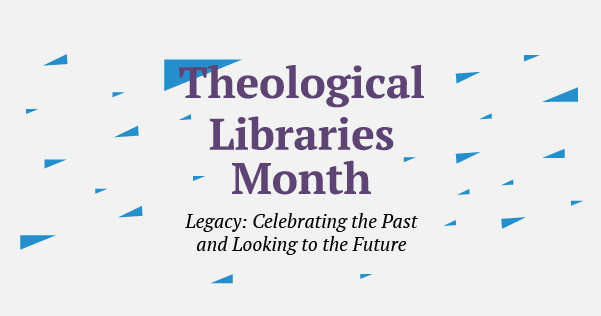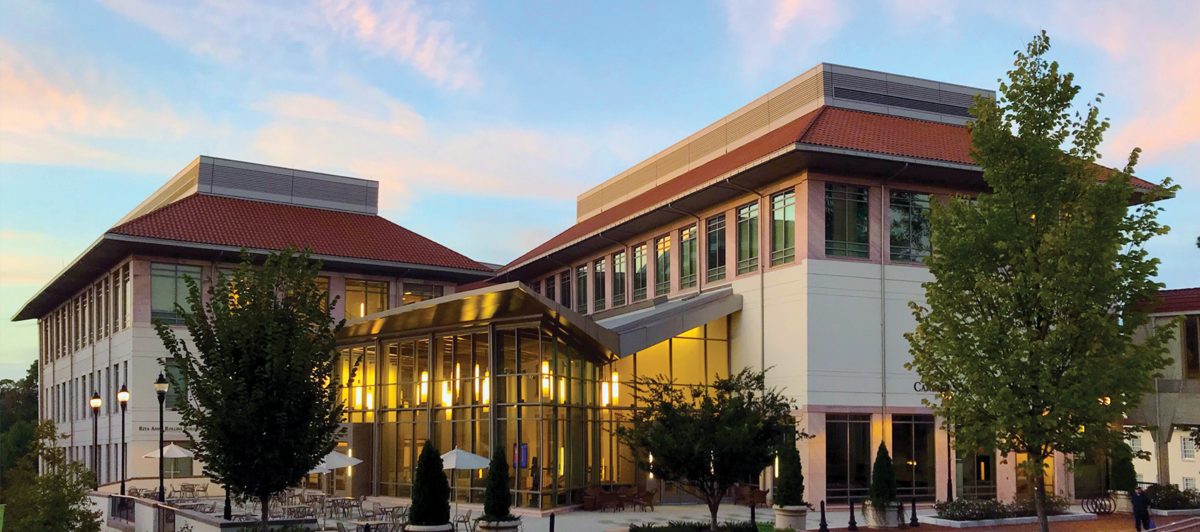
October is Theological Libraries Month, celebrated to increase awareness of the importance and value of libraries serving theology and religious studies programs through communications and activities for faculty, administrators, staff, and students. As Pitts Theology Library joined Emory and universities around the globe in the shift to remote research and learning in response to the Covid-19 crisis, it was faced with the question “what does theological librarianship mean in the digital world?” From cataloging to communications, Pitts took action to revise and transform its standing policies, procedures, and services.
First, Pitts ramped up its digital publication efforts starting with the Candler School of Theology 2020-21 Catalog and Handbook, which is available online and in a 250-page PDF. Pitts and Candler staff worked together to compile, edit, and publish the catalog. Pitts has also published a translation by Jim West titled Huldrych Zwingli: The Implementation of the Lord’s Supper, which is now online and in PDF form. In addition, Pitts is working to produce digital versions of past print publication in the near future.
The library’s technical services also embraced change. While cataloging often involves direct interaction with books, there is also much that can be done remotely to facilitate better access to the library’s resources. Cataloging librarians and staff worked hard to make more e-books and digital resources available, but physical resources also need good and consistent metadata to be discoverable. The past few months have also provided Pitts librarians with an opportunity to catch up on cataloging microform resources and to evaluate and improve the data in the online catalog for the benefit of students and researchers.
In acquisitions, staff adapted collecting methods to best serve patrons during remote learning while making sure that the library maintained the quality of resources and collection integrity that researchers depend on from Pitts. Since March, the library purchased more than 250 ebooks and continue to increase our electronic resource offerings through electronic databases and ejournals as well. Staff have worked with students and faculty to find solutions for inaccessible items and are encouraged by the innovation and collaboration that has made it possible for research and theological education to continue despite these challenges.
The Special Collections department, which houses the library’s archives, manuscripts, and rare books, has expanded its digitization efforts to meet the needs of students, faculty, and other researchers. In addition to providing researchers access to these digital materials by request, the library staff is currently developing a digital repository so that these materials will be available to the wider public through the library’s website. For Emory-affiliated researchers who need to use special collections materials on site, the Graham-Jeschke Reading Room is open by appointment. See here for more details on scheduling a research appointment: http://pitts.emory.edu/collections/index.cfm
Serving the Candler community during the COVID-19 pandemic gave the Pitts circulation team the opportunity to evaluate and expand the library’s offerings to meet the changing needs of our patrons, who lead multifaceted lives not only as academics, but also church and community leaders. By facilitating contactless book checkouts, opening Document Delivery services to the entire Candler community, and transitioning to fully-digital course reserves, the public services staff supported learning and teaching by lowering barriers to access, and continues to refine and reassess services as our patrons’ needs evolve.
Pitts Theology Library is perhaps best known for its annual events, including Reformation Day, exhibition openings, film screenings, and guest lectures. As the physical campus closed, the library’s new venue of online events opened, facilitating participation not only for regular attendees, but audiences across the globe. Using streaming software like Bigmarker, Pitts engaged special speakers for a new series of “Kessler Conversations” asking this question, “What relevance do the events, personalities, and texts of the Protestant Reformation hold for contemporary communities?” This new format generated a renewed interest in library sponsored events and is an exciting prospect for future programming.
Finally, research support and instruction by the reference team took on an entirely different presence in the digital world. Content that was previously taught in in-person orientation sessions or course visits migrated online through new video series, demonstrating everything from using Zotero to formulating a research question. All workshops and video tutorials are archived and made freely available online. Rigorous training on using the reference tool LibAnswers improved the quality and responsiveness to research inquiries submitted through email or chat at pitts.emory.edu/ask. In addition, a new booking system for Zoom consultations gave students the opportunity to schedule one-on-one, in depth sessions with reference librarians.
All of these changes allowed Pitts Theology Library to both celebrate the past and look to the future as it reshapes its legacy of serving the Candler, Emory, and wider communities. Join us in celebrating these and efforts around the globe that lay the groundwork for Theological Libraries Month!

